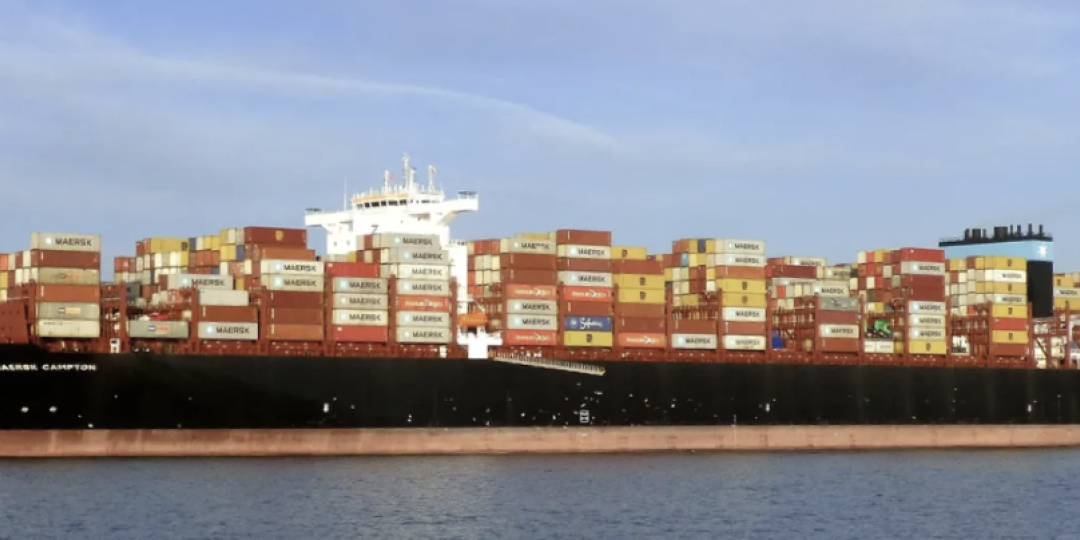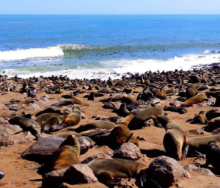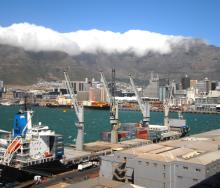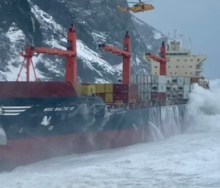A large Maersk container ship, carrying an estimated 327 tonnes of what is believed to be hazardous waste containers, was scheduled to dock in Cape Town but disappeared after international watchdog group, the Basel Action Network (BAN) warned the government.
Maersk Campton, the first of two ships carrying 100 containers of waste – which originated in Albania – to Thailand, was scheduled to dock in South Africa on August 1, BAN said in a statement, but following an alert to the government, the ship's Automatic Identification System (AIS) GPS beacon was switched off on 31 July.
“We can imagine no other reason for this behaviour other than an effort by Maersk to avoid arrest or delays due to the likelihood of its ship being involved in trafficking in hazardous waste,” said Jim Puckett, BAN Executive Director.
“We call on Maersk to co-operate immediately in assisting the international community in preventing illegal dumping of hazardous wastes.”
According to the International Maritime Organization's Solas Convention, the AIS beacon should always be turned on when vessels are under way or anchored. Only in the case of imminent danger, when the captain of the ship is certain that the continuous signal broadcast compromises the safety and security of their ship, can it be switched off.
South Africa reportedly searched diligently for the missing vessel in its waters for many hours, in vain, according to BAN.
It now appears that the vessel continued on its way to the East as officials in Asia have reported that approximately 100 containers suspected of carrying toxic material will be rejected and returned to Europe. The containers are believed to be transporting 800 tonnes of toxic steel furnace dust collected from pollution control filters.
The NGO Basel Action Network has alleged that export permits were not granted for the waste and that Thailand had not been notified of the consignment in line with the United Nations Basel Convention, which governs trade in hazardous and other wastes.
The second ship, the Maersk Candor is allegedly carrying 60 containers of the waste and was travelling on a similar route.
BAN and other environmental justice organisations, including groundWork and Earth in Thailand, have called for the Maersk Candor to be seized and for the cargo to be analysed.
"If they are found to contain toxic waste, they must be returned directly to the sender at their own cost and never be allowed to remain in Africa or dumped in Thailand,” said Musa Chamane, Waste Campaigner for groundWork.
If confirmed to be hazardous waste, by the provisions of the Basel Convention the containers could be seized and repatriated to Albania.
Likewise, in Thailand, the national environmental group EARTH has notified its government of the massive shipment of pollution control dusts.
“Under no circumstances will Thailand accept being the dumping ground for the rest of the world's toxic industrial waste, electronic waste or plastic waste," said Penchom Saetang, EARTH's Director.
It is feared that, unless action is taken, the toxic filter dusts will be spread on agricultural fields or otherwise dumped in Thailand. A similar shipment of the same types of waste was stopped when it arrived in China earlier this year. Chinese authorities found that shipment to contain more than 8% of toxic lead.













